No products in the cart.
Mandip Singh Soin — An Adventure Buff Becomes an Eco-Warrior
An Interview by Ranee Sahaney
It’s been a long and eventful journey of many adventures over 45 countries and across 7 continents, for Mountaineer, Explorer and Fellow of the Royal Geographical Society, Mandip Singh Soin. Since 1979 he has, as Founder and Managing Director, been helming the affairs of Ibex Expeditions Private Ltd, which is celebrating over 45 years of dazzling clients with consummate travel experiences around the world.
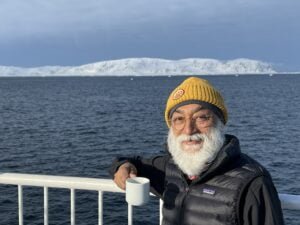
The adventure bug bit Mandip early. As a teenager he was already relishing the joys of climbing his way around the Himalaya. The dare devilery exploits from his early days, which have marked his progress in extreme adventure activities, is nicely illustrated by a standout event after an ice-climbing expedition in Scotland, in which he went on to complete the winter climb of Raven’s Gully without a helmet, regarded as one of the most challenging climbs in the UK.
Another highlight was Tandem Hang Gliding in Chamonix, France, which was a new sport at the time. In 1989, Mandip travelled to the Arctic as an instructor, taking with him the first Indian student to make such a trip. For over a month they stayed there studying the ozone hole and examining the pollutants in the ice.
Some of the most prestigious awards bestowed upon him during the course of this many-splendored journey are the vivid signposts of his numerous accomplishments in the realm of adventure tourism. The only Indian to have received the NESS Award from the Royal Geographical Society (UK), Mandip was also privileged to receive the Tenzing Norgay Adventure Award, for Lifetime Achievement, from the President of India; he is also the only Indian to receive a Citation of Merit from The Explorers’ Club, USA.
The adventurer in Mandip intersects with his avatar as a passionate conservator of the natural world. His advocacy for eco- friendly travel practices led to his co-founding The Responsible Tourism Society of India (formerly the Ecotourism Society of India), a non-profit organisation dedicated to promoting and advocating for ecotourism and responsible travel in India. An international speaker and keen environmentalist, Mandip continues to push the cause of responsible and sustainable tourism through many fora.
What are some of the abiding lessons which have shaped your sensibilities about tourism while travelling around India and abroad?
Travel opens up two types of journeys: the inner and the outer journey. It has pulled me out of my comfort zone. By opening up the windows of my mind it has allowed me to make space for different perspectives of the places I visited, the people I met and the environs they inhabited. It taught me to respect that space. Being empathetic is important, but equally important, I found, was my contribution of trying to give back in my small way, to make the world a better place. The crystallising moment when the path to eco-tourism became a major highway for more responsible tourism practices.
In 1989, a personal turning point made me more of an eco-warrior/pacifist than I had imagined. I was invited to take part in a United Nations Environment Programme (UNEP) supported Arctic environmental expedition called ‘Icewalk’. Supported by American and Canadian scientists, we studied the growing Ozone Hole and the tested the ice for pollutants like PCBs and to our horror we found that not only was the Ozone hole growing but also there were industrial pollutants present in the otherwise pristine Arctic wilderness, thanks to the winds that would bring these from the industrial Americas.
These pollutants had seeped into the Arctic waters thus into the krill that in turn was eaten by the seals which was food for the local Inuit’s thereby entering into the human system. Clearly this was a problem of mammoth proportions and it was easy to get depressed by these findings as the world was just about waking up to the environmental impacts that were being caused by us human beings worldwide.
But the big learning and empowerment came when the Polar Explorer Robert Swan communicated in a strong message that this problem was created by us and we therefore must find the solutions and inspired us to believe that EACH one of us can make a Difference.
So, how did you translate this into action?
So, I decided upon my return to try and not only do what we can at Ibex Expeditions but also the wider Tourism sector to make it eco-sensitive. Being a mountaineer and explorer, one had been brought up with an innate respect for the world of outdoors and I knew that first I would have to show by setting a personal example
Thus, when I took the first steps at Ibex Expeditions signing up to the Himalayan Environment Code of good practice (which demanded us to stop campfires, bring back all non-biodegradable garbage and change from kerosene to solar lanterns). Many thought the added costs would make us uncompetitive. But though there was a marginal cost escalation, what we got in return were loyal customers who said “the environment was safe when travelling with us”.
PATA’s international Sustainable and Social Responsibility Committee, on which I served for many years, made a Travellers Code which also awakened travellers into becoming auditors of the organizations they
chose to travel with as well as the lodges/hotels they chose to stay at. Soon, the same committee evolved simple environmental guidelines for airlines, railways, cruise liners, transporters, and National tourism boards.
Raising the bar for ourselves, we have embarked on an even more ambitious project of converting the Chambal dacoits to become Ecotourism guides as they sit on an asset which is teeming with wildlife. Two river expeditions have been undertaken on the river Chambal along with the Madhya Pradesh Ecotourism Development Board.
Travellers are urged to be more mindful by practicing non-invasive behaviour whether it’s related to culture or the environs of the local community. How can an adventure tour outfitter help change the mindset of their guests?
Travel is a great privilege and to be respectful of the outdoors is the first code of every adventurer! To lead by example adventure travel companies, oftentimes as not, are at the forefront of nature conservation—because people largely veer towards nature as a playground for pleasure and relaxation.
Our actions should gently send home the message, with regard to our natural environment, that ‘You don’t want to mess that up.’ This can be underpinned by the sustainable hotels, lodges and like-minded local partners that we choose for our journeys. During our Himalayan expeditions, just to illustrate my point further, we do not make campfires with wood from the area. As it is, there’s not a lot of firewood around and what is there is for local consumption. To reduce the carbon footprint in the local environment we use solar power for cooking, showering and for light. We encourage support for the local economy, non-profit organizations for the environment, cultures or education.
Furthermore, to create a balance between growth of tourism and sustainability, we need to educate the tourists and tell them to feel that ‘the environment is the king and not the customer’. They will understand, as everyone has an innate sense of responsibility, and they would respect us for the same. I have been running journeys into the Himalaya and beyond for 45 years and have never had a campfire, as it would mean taking the wood, which is the livelihood of locals there, away from them.
When we communicate it to the travellers, they respect it. The industry needs to bring in a little balance between what the scientists suggest and what they plan to construct, and I am sure customers will be happier and feeling better about doing things in the right way.
Responsible Tourism by definition benefits the traveller, the industry, and the destination. More importantly. local communities, the true custodians of tourist destinations, must become the greater beneficiaries of the unique experiences only they can offer.


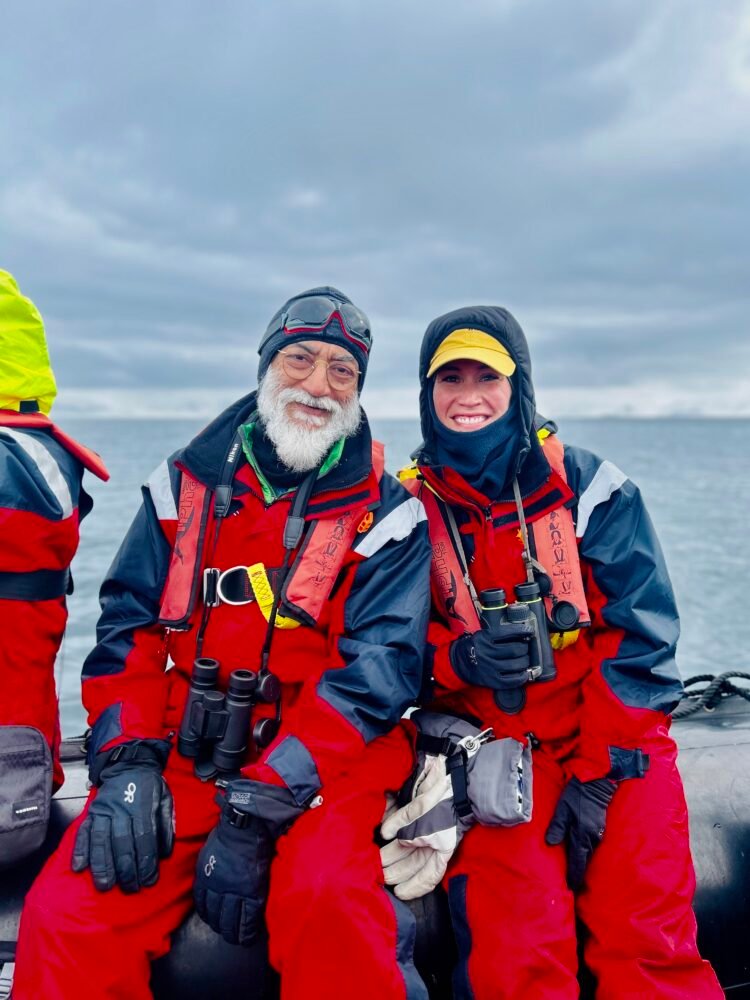
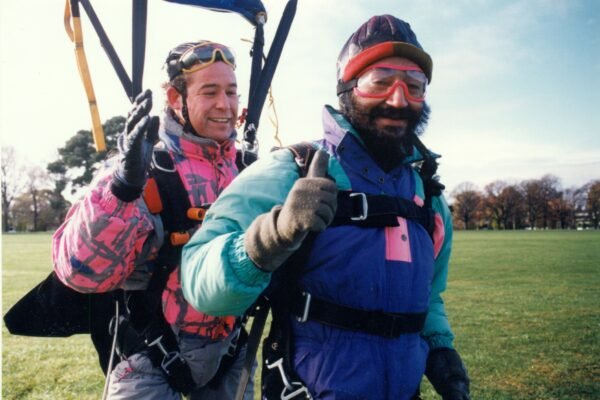

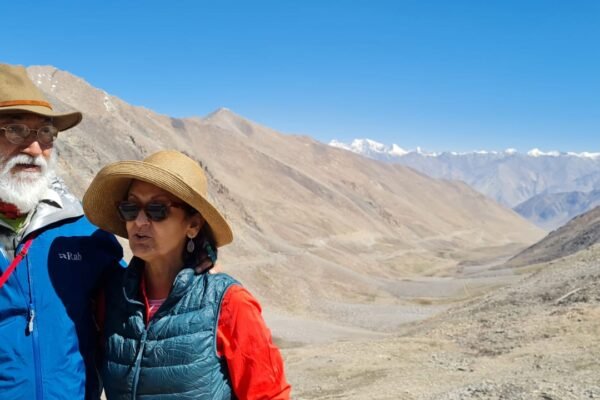
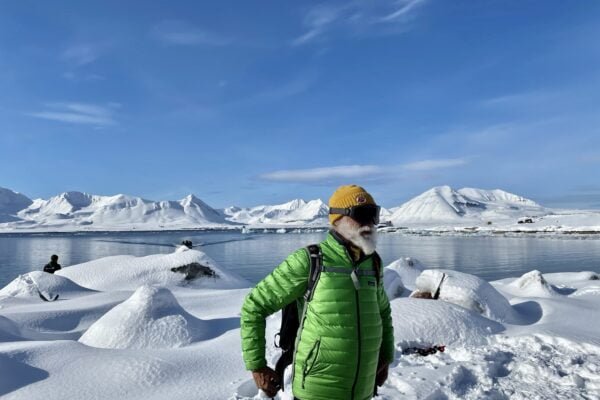














Great write-up be it’s been amazing to know Mandip Singh Soin in the travel trade. He is an inspirational individual.
🤗
Great Article to know about adventure sports & Tourism of India also very informative site
👍🏼
Thank you, Mandip for being such a good role model for tourism and an inspirational life.
🤗
Very nice to see Mandeep , all the best
🤗
Fantastic interview
Thanks🤗